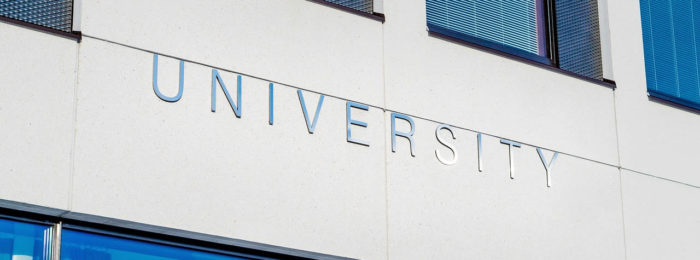
A reverse mortgage could ease the burden of paying for college
The cost of tuition is out of hand. Most students who don’t qualify for extensive and lucrative scholarships are stuck with student loans that can take not years, but decades to pay off.
One creative way to pay for tuition these days is to use a reverse mortgage. If you’re 62 or older, you can apply online for this variety of home loan which allows you to tap into all that equity you’ve been building up for years.
If approved, you can take your proceeds in one lump sum or in equal monthly disbursements. You can then use some of the cash to gift to your grandchild or child to help with paying college tuition or with paying off an existing student loan. Find out how much of a reverse loan you qualify for here: https://reverse.mortgage/calculator.
According to a report by The Collegian, while traditional loans and lines of credit qualify as debt, reverse mortgages can actually help get a person out of debt. What this translates into, is that once you turn 62 you can legally stop making home mortgage payments but instead, allow your home to pay you.
Realistically speaking, a person who qualifies for a reverse mortgage can come into hundreds of thousands of dollars almost overnight. The money can then be used to take care of expenses you might otherwise not be able to afford, such as the college tuition for the kids or grandkids.
Says educationdata.org, among the adults who are holding student loan debt, 93 percent of them had to take out federal loans to pay for their education. Another 82 percent borrowed money from the bank to pay for the grandkids or children’s college education.
That said, if more long-time homeowners were aware of reverse mortgages, the massive amount of student debt might theoretically be lowered dramatically. For instance, if the proceeds for your approved mortgage are $800,000, you can gift your child or grandchild $100,000 or $200,000, tax free, and still have a hefty nest egg leftover for your future.
Here’s a few things you should know about how a reverse mortgage and how it can make paying for college easy.
Defining a reverse mortgage
When a borrower is approved for a reverse mortgage, he can receive the money in three ways: a lump sum payment, or equal monthly income payments, or a line of credit that will last for as long as you remain in the house. It’s also possible to receive a combination of all three payment methods.
When the home is finally sold, the loan is paid back including the interest and other miscellaneous fees. Interest is charged as soon as the borrower receives the proceeds. Unlike a traditional loan, the borrow is not expected to make regular monthly payments.
The financial obligations of a reverse mortgage borrower
The Collegian reports that one of the biggest concerns among reverse mortgage borrowers is their interest obligations. However, the interest payment will come from the home’s equity which means the borrower does not have to cut a separate check to fulfill the financial obligation.
However, the borrower still owns his home, which means he’s expected to pay for the usual home maintenance, property and school taxes, homeowner association fees, insurance payments, and that new wooden deck you’ve been thinking about installing in the backyard.
Who is not eligible for a reverse mortgage
While a person must have reached his 62nd birthday to qualify for a reverse mortgage (and Social Security), the borrower is required to be the outright owner of the home. If your mortgage isn’t fully paid off yet, you can do so with the proceeds received from the reverse mortgage.
The borrower is not expected to pay any federal tax which means you can easily pay for student debt without worrying about a tax bill. But keep in mind, you must keep on living on your property, or the reverse loan must be paid back immediately.
Tax implications of a reverse loan
You should think of a reverse mortgage as an advance on your home equity. This means your proceeds cannot be taxed. That is, under current law. But that could change considering the present state of massive federal government debt which is only growing.
However, the interest paid on the loan cannot be deducted from your tax bill until the loan is finally paid off. Keep in mind if you make the decision to save the proceeds of a reverse mortgage or invest them in stocks or crypto, it can affect your eligibility for public benefits such as Social Security.
Check with your financial advisor to seek out the best course of financial action when it comes to spending your reverse mortgage proceeds. One of the best ways is to invest in the future, and that can be accomplished by helping your child or grandchild pay for his college tuition.



